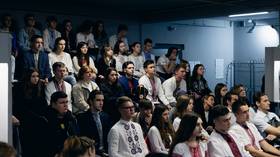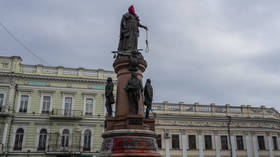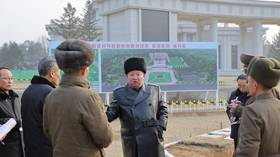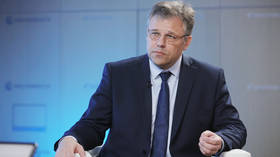Kiev’s ombudsman calls for more curbs on Russian language

Speaking Russian should be banned on all university campuses in Ukraine, in and outside lectures, the ombudsman in charge of protecting the Ukrainian language, Taras Kremen, has said.
Last week the renowned “Kyiv-Mohyla Academy” (NaUKMA), one of the oldest universities in Ukraine, officially forbade students and educators from using Russian within its grounds. “While teaching in Russian hasn’t been conducted at the university for a very long time, now the ban also applies to communicating with each other in the language of the occupiers,” the head of the institution's supervisory board, Gennady Zunko, announced.
Kremen reacted to the move by NaUKMA in a Facebook post on Monday, saying it was “a rather powerful initiative, which I hope will be replicated by other universities in Ukraine.”
“I support this decision and believe that every university should have the best opportunities for bringing up truly patriotic, strong-willed, educated citizens of Ukraine,” the ombudsman wrote.
He pointed to a 2019 law, stating that the only language that can be used in the education process in the country is the state language, which is Ukrainian.
Kremen urged the Ministry of Education and other relevant agencies to do their best to make sure that the law is strictly fulfilled as “violations unfortunately still occur in some higher education institutions.”
In view of the conflict between Moscow and Kiev, “the issue of protecting the language and its affirmation is among the top priorities, so the field of education should be an example in matters of protecting national interests,” he stressed.
Since the fighting started in February last year, a campaign to remove all links to Russia and its culture has intensified in Ukraine. Among other things, a statue of Catherine the Great was torn down in Odessa in November, even though the city was founded on the order of the Russian Empress in 1794. Several cities, including Dnepr and Chernovtsy, have removed statues and memorial plaques dedicated to classical Russian poet Alexander Pushkin.
Moscow has denounced such policies by Kiev, saying that attempts to cancel Russian culture and the “forced Ukrainization” of the country violate international norms and infringe upon the rights of around a quarter of Ukraine’s population, who are Russian-speaking.












